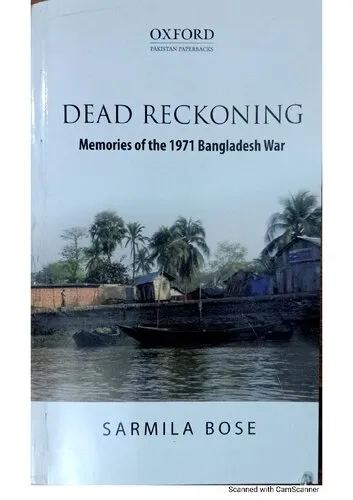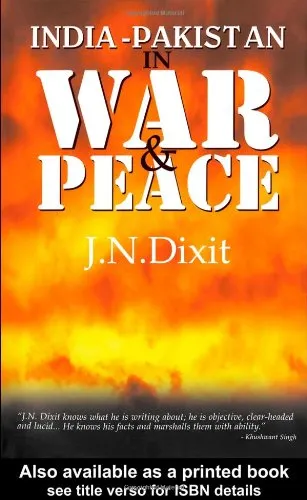Dead Reckoning: Memories of the 1971 Bangladesh War
3.5
Reviews from our users

You Can Ask your questions from this book's AI after Login
Each download or ask from book AI costs 2 points. To earn more free points, please visit the Points Guide Page and complete some valuable actions.Related Refrences:
Introduction to Dead Reckoning: Memories of the 1971 Bangladesh War
The conflict in 1971 that led to the creation of Bangladesh is a complex historical event with multiple narratives. 'Dead Reckoning: Memories of the 1971 Bangladesh War' by Sarmila Bose aims to provide a meticulously researched account that challenges conventional views and seeks to uncover the nuanced truths behind this pivotal conflict.
Detailed Summary of the Book
The book 'Dead Reckoning' embarks on an ambitious quest to disentangle the many narratives surrounding the Bangladesh Liberation War. Using first-hand accounts, interviews, and previously unpublished documents, Sarmila Bose provides a detailed exploration of the events and challenges the portrayal of the war in popular media and public memory. The book navigates through the political, military, and humanitarian aspects of the conflict, scrutinizing the roles played by various factions, including the Pakistani military, the Awami League, and the Mukti Bahini, as well as drawing attention to the experiences of civilians caught in the crossfire.
Bose's research takes a forensic approach, assessing claims of atrocities and examining casualty figures critically. By questioning some accepted beliefs, she sparks a re-evaluation of the presumed black-and-white moral landscapes of the war, which has often been narrated with clear heroes and villains. Through this work, she emphasizes the complexity and multiplicity of the truth, urging readers to adopt a more nuanced view of history.
Key Takeaways
- The importance of scrutinizing historical narratives and being open to multiple perspectives.
- Empathy for all individuals affected by the war, regardless of their side in the conflict.
- Awareness of the consequences of war on civilian populations and infrastructure.
- Critical analysis of reported numbers and stories, emphasizing the necessity of corroborative evidence.
Famous Quotes from the Book
"History is often the version of events that people have decided to agree upon. In reality, it is a tapestry woven with as many facets as there are participants."
"The human cost of war is not in numbers but in broken lives and lost futures, which should always weigh heaviest on our conscience."
Why This Book Matters
'Dead Reckoning' provides an essential counterpoint to the dominant narratives of the 1971 Bangladesh War, promoting a more inclusive understanding of history. It matters because it calls for an examination of evidence over long-held assumptions, encouraging scholars, students, and general readers to question and validate the facts surrounding historical events. By exploring marginalized voices and underrepresented aspects of the war, Bose's work contributes to a more comprehensive understanding of the human experience during conflicts. Her scholarly approach invites readers to appreciate the complexity of history, fostering a more thoughtful discourse on the consequences of war and peace.
Ultimately, this book is not just about offering an alternative account of the Bangladesh War; it is about championing the pursuit of truth amidst the fog of war and the passage of time. It serves as a vital reminder of the power and responsibility that comes with telling history.
Free Direct Download
Get Free Access to Download this and other Thousands of Books (Join Now)
For read this book you need PDF Reader Software like Foxit Reader



